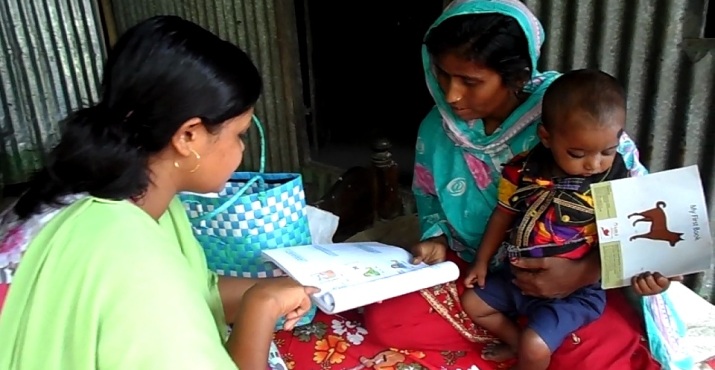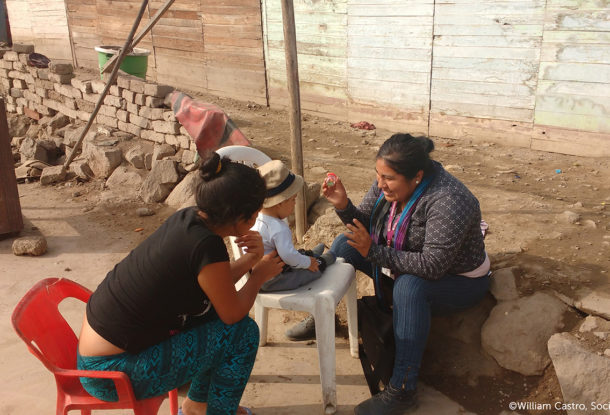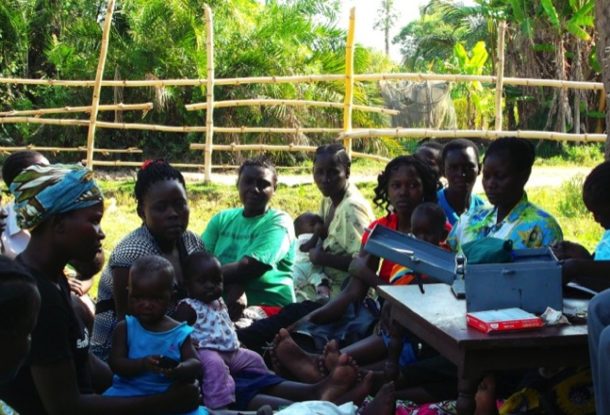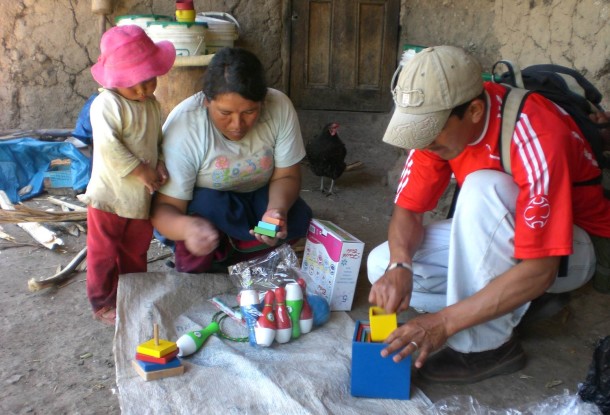Innovation Summary
 Almost 60% of kids in Bangladesh are at risk of poor development due to low body weight (22%) and undernutrition (41%), poverty, and sub-optimal stimulation due to low parenting knowledge . [1] The mother is usually the key childcare provider and her physical and mental health is a major predictor of child development, particularly in low and middle-income countries. Depression in particular is reported as a leading cause of disease burden for women and maternal mental health is identified as one of the major predictors of child development.
Almost 60% of kids in Bangladesh are at risk of poor development due to low body weight (22%) and undernutrition (41%), poverty, and sub-optimal stimulation due to low parenting knowledge . [1] The mother is usually the key childcare provider and her physical and mental health is a major predictor of child development, particularly in low and middle-income countries. Depression in particular is reported as a leading cause of disease burden for women and maternal mental health is identified as one of the major predictors of child development.
The goal of the innovation is to improve care-giving practices of depressed mothers, and to reduce maternal depression, which subsequently will improve children’s health and development.
This project employs a two-pronged approach to the maternal mental health of women living in Bangladesh. First, it uses Cognitive Behavioural Therapy (CBT) to manage mothers’ depression. Second, it trains depressed mothers on psychological stimulation to encourage them, despite their poor mental health, to be good caregivers for their children. Approaching the mother and child pair together can improve maternal mental health while additionally helping to ensure a nurturing environment for young children.
Gallery
Impact
- 115 mothers and their children will have access to the intervention and training.
- 33 service providers of 15 community clinics, 5 field organizers and 5 NGO staff will show an increase in maternal depression-related knowledge.
Previous projects have used only one or the other of the interventions — depression treatment or child’s psychosocial stimulation. In this approach, we address the mother and child together to produce an optimal child-friendly environment to maximize the investment.
-- Fahmida Tofail, Project Leader
Innovation
About one third of Bangladeshi mothers suffer from depression. Though early stimulation interventions in Bangladesh have showed moderate improvements to children’s development., there are still some gaps in the pathway to delivery. This may indicate that there are other factors that also need to be addressed.
In Bangladesh mothers with subclinical depressive symptoms often do not seek treatment due to the stigma attached to it. Depressed mothers who do not receive treatment often fail to provide sufficient stimulation and care for their children and in turn compromise benefits of early stimulation programs.
Rahman and colleagues (2008) tested an innovative model of community-based depression management using Cognitive Behavioral Therapy (CBT) in Pakistan and reported improvement in maternal depression 6 months postpartum. [4]
The innovation will combine the above treatment of depression with an evidenced-based ECD program to achieve maximum benefits on reducing maternal depressive symptoms as well as improving children’s overall development.
Collaboration
Funders
- Grand Challenges Canada
Key Partners
- Government staff working in community clinics in Bangladesh.
Implementation
Key Drivers
Program Modified from Ongoing Feedback
- Based on the lessons learned from the ongoing work, the project will be modified by making the intervention more comprehensive and integrated. Some modifications include:
- Sessions will be further developed so they are more interesting and participatory.
- A practical example will be incorporated into the session to help the mothers with how to convert their negative thoughts to positive.
- Trying to find ways to increase involvement of government officials in monitoring tasks etc.
Partners including the Directorate of the Community Clinics under Ministry of Health and Family Planning, Bangladesh Shishu (child) Academy under Ministry of Women and Children’s Affairs.
Challenges
- Expectations for higher pay – government female health worker (FWA) and health assistants (HA) expect to be paid extra for their work.
- Attendance of mothers & children – in some cases difficulties in delivering Thinking Healthy Program (THP) to the mother using cognitive behavior therapy (CBT) attendance of mothers and children
- Scheduling sessions – difficulty in scheduling mothers’ sessions due to their schedules
- Motivation and monitoring – lots of motivation and monitoring of participants is required by program staff to ensure attendance, participation, uptake, etc.
- Political instability and cultural context – smooth progress of the program is interrupted by political instability (strikes and road blockades), long absences due to grand festivals, and mothers’ lack of free time during harvesting seasons.
Evaluation Methods
The program will be evaluated through a randomized controlled trial. Outcome scores of 300 mother-child dyads (150 each, in intervention and control arms) will be compared.
Outcome measures for mothers include:
- Depression.
- Self esteem.
- Childcare practices.
Outcome measures for children include:
- Cognitive, motor, and language development.
- Measurement of amount of stimulation received at home.
- Child’s behavior.
Impact of Innovation
Of the 115 mothers and children who will have access to the intervention and training, it is expected that children will have 0.4 SD higher scores compared to children in the control group in two or more of the following measures: cognitive, motor, language and behavior scores.
It is also expected that providers will have increase knowledge on managing and supporting maternal depression.
References
- Hamadani, J. et al. (2010). The use of indicators of family care and their relation to child development in Bangladesh. Journal of Health, Population and Nutrition 28, 23-33.
- Rahman, Patel, and colleagues. (2008) The neglected ‘m’ in MCH programmes–why mental health of mothers is important for child nutrition. Trop Med Int Health 2008; 13: 579-83.
Resources
-
Instruments & Batteries
-
Bayley's Scale Of infant Development-III®. Cognitive Function.
-
Modified version of Wolke's Behavior Rating. Socio-emotional. Personal communication.
Home Observation for Measurement of the Environment. Family Care Indicator. -
Rosenberg Self Esteem Questionnaire Online. Socio-emotional.
-
Edinburgh Postnatal Depression Scale (EPDS)” - Online.
-
Knowledge, Attitudes and Practices and Socio-economic baseline questionnaire.
-





